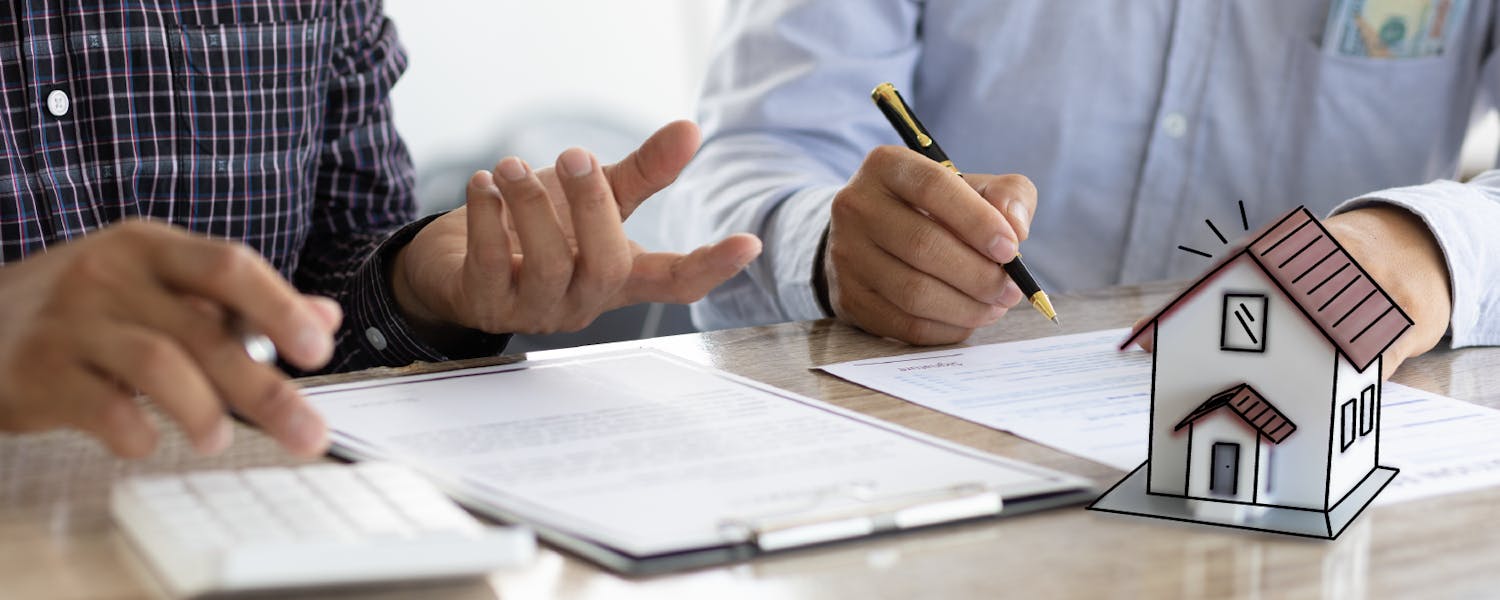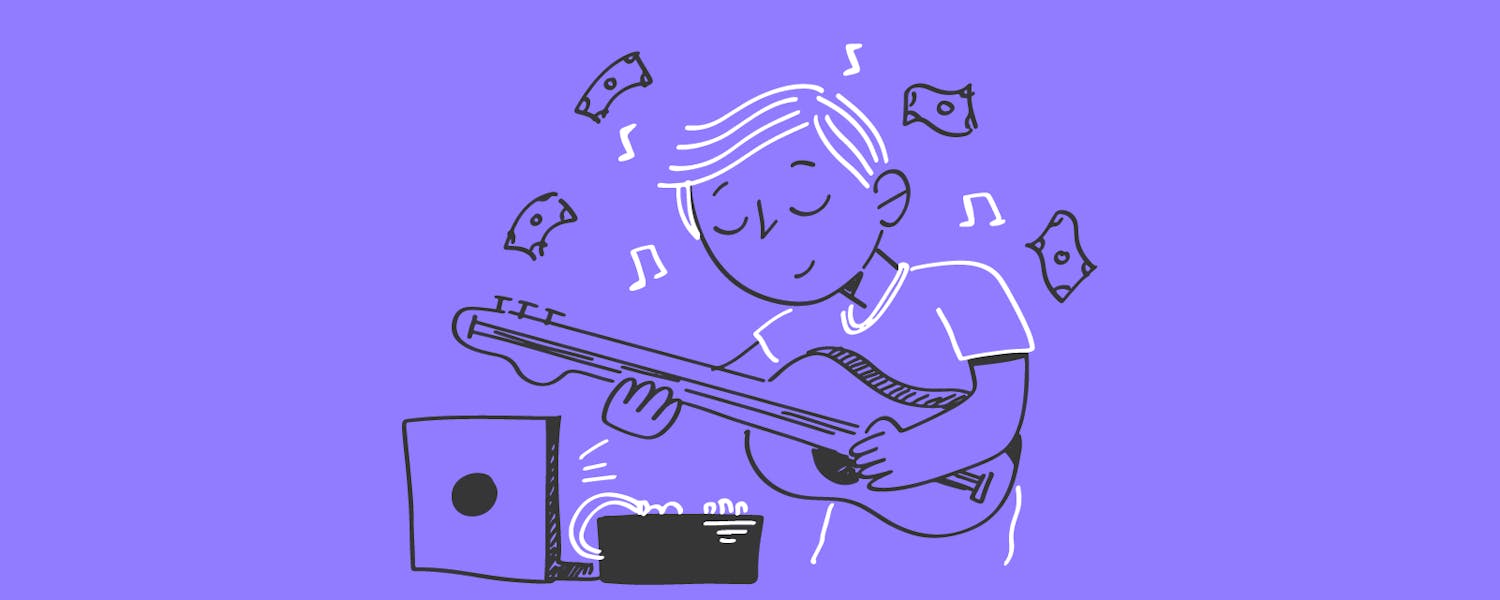Buying a House? Decide: Fixed vs. Adjustable Rate Mortgage?
Buying a house is a big decision, not only because you must find the perfect house for you but also because you must choose the right mortgage.
And when it comes to financing your home, the largest decision is choosing between a fixed and an adjustable-rate mortgage (ARM).
Here’s what you must know.
Why is Choosing a Mortgage So Hard?
A mortgage is a big decision.
It could be a debt you carry for 5 - 30 years, and it's how you can purchase the place you live.
How well you pay your mortgage affects your credit, and if you get too behind, you risk losing your house, so choosing an affordable mortgage is crucial.
Envato/BrianAJackson
When choosing your mortgage, you must consider many factors, including the type (fixed or adjustable rate), the interest rate, and the down payment.
You'll want to understand the factors that make up your mortgage, interest compounds on your balance over the life of the loan but, the down payment reduces the amount you borrow, making the payments more bearable or shortening your payment period.
When you sign up for a mortgage it becomes a part of your life for many years and will affect other financial decisions, such as buying a car, taking vacations, and even saving for retirement.
Choosing the Down Payment
A higher down payment can provide lower monthly payments, but you could get into financial trouble if you don’t plan your spendings.
Consider how much you can afford to put down ( it's usually required from 3% to 20% of the total debt), and how much you’ll need for moving, home repairs, home and owners fees, insurance and don’t forget to keep some money in your emergency fund, now that you own a new home, you’ll probably need to increase it.
Envato/fotodestock
Lenders like borrowers to have some 'skin in the game,' so making a down payment may help you get better terms, so weigh your options and determine which works best for you.
How Fixed Rate Mortgages Work
Fixed mortgages have a fixed interest rate. It never changes.
This means your mortgage payment stays the same for the life of the loan.
The only factors that would change it are if your real estate taxes or home insurance costs change.
You don’t have to worry about your payment adjusting and how you’ll afford it.
Fixed rate mortgages keep the same rate you locked in when applying for the loan. Fixed rates are good for those buying their ‘forever home’ or who want stability and don’t want to deal with the uncertainty of changing interest rates.
Envato/nateemee
How Adjustable-Rate Mortgages Work
Adjustable-rate mortgages have a fixed term, usually 1 – 7 years, and then the rate adjusts annually.
For example, a 5/1 ARM has a fixed rate for five years and then adjusts annually, whereas a 7/1 ARM has a fixed rate for seven years. It adjusts annually after that.
The rate can increase or decrease; it depends on the index the lender uses to determine your interest rate (Prime, LIBOR, etc.).
Lenders also add a predetermined margin to the index rate to determine your interest rate.
However, there are limits or caps so the interest rate doesn’t get out of hand.
Your rate will change annually, potentially increasing (and sometimes decreasing) your monthly payment.
ARM loans are good for people with short-term homeownership goals or who know their income will increase in the coming years.
They can take advantage of a lower payment now, and then the increased payment won't be a burden in the future.
Pros and Cons of Fixed Rates vs ARM Rates
Envato/Prostock-studio
 Fixed Rates
Fixed Rates
|
✅ Pros of Fixed Rates
|
❌ Cons of Fixed Rates
|
Adjustable Rates
|
✅Pros of Adjustable-Rates
|
❌Cons of Adjustable-Rates
|
Other Factors to Consider When Buying a House
Envato/fotodestock
There are key factors to consider when buying a house, that you should take into consideration when choosing between a fixed vs. adjustable-rate loan.
-
How much can you afford?
Don't only look at the monthly payment and decide what you can afford.
Your mortgage payment stays with you for 5 – 30 years, so consider the future when deciding.
Consider the long-term effects:
- How will it affect your finances in the future?
- Will you go down to a single income or change careers?
-
What are the market conditions?
Buying a house during a seller’s market will likely mean you’ll pay more for the house than in a buyer’s market.
Assess the market and work with a professional to determine the best timing.
-
What are the interest rate forecasts?
Talk to your mortgage lender about forecasted interest rates.
No one can predict 100% what will happen, but the news and other economic trends will help professionals understand what might happen.
Sometimes you can benefit from waiting for interest rates to drop when inflation rates are too high.
-
How much are you willing to risk?
Remember, your house is on the line when you borrow a mortgage.
The house is the bank's collateral. If you miss too many payments, they could repossess the home.
Think about your peace of mind and what you can comfortably afford without burning yourself out or causing too much stress.
Final Thoughts
Choosing between a fixed and adjustable-rate mortgage is one of the largest decisions you’ll make when choosing a mortgage, but it’s not the only factor.
It's important to look at the big picture.
Decide how much you can put down on the home and how it affects your payment.
Next, consider the interest rates and decide which type works best for you.
Consider your current and future financial life, remembering that life can change in the blink of an eye.
Don’t get in over your head, but invest in the home that suits your family’s needs the most.





